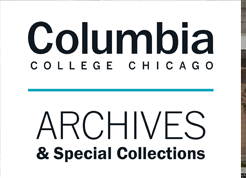

Files
Loading...
Description
Nathan Gagnon (he/him) was born in Berkeley, California in 2002 and was raised by his French-Canadian immigrant parents in Albany, California. He has always been creative: he was an aspiring animator from a young age, making videos with LEGO in his free time. In middle school he started learning piano, and he now plays guitar and sings as well. In 2019 he played his first open mic at The Octopus, a local music venue which has since closed permanently. In the spring of 2020, he had a socially distanced graduation from Albany High School after many months of remote learning. In the fall of 2020, he started his first semester at Columbia College Chicago in the midst of the COVID-19 crisis, pursuing a major in Traditional Animation with a focus in Stop Motion. He continues his studies from his current residence on campus in Chicago, Illinois, and plans on graduating in 2024.
Publication Date
Fall 2020
Publisher
Columbia College Chicago
City
Chicago
Keywords
COVID-19, pandemic, Chicago, Illinois, United States, coronavirus
Creative Commons License

This work is licensed under a Creative Commons Attribution-NonCommercial-No Derivative Works 4.0 International License.
Disciplines
Arts and Humanities | Oral History | Public History | Social and Behavioral Sciences
Recommended Citation
Donahue, Christopher, "Interview with Nathan Gagnon" (2020). Capturing Quarantine Oral Histories. 26.
https://digitalcommons.colum.edu/capturingquarantine/26



Comments
Nathan Gagnon recounts the story of his experience during the pandemic, including how he struggled with the shutdown, remote learning, political unrest, and his mental health, all the while still pursuing his passions of animation and music.
He begins the interview by recounting a brief overview of his life up until the pandemic, introducing how he became interested in music by learning to play the piano, and animation by playing with Legos. He describes how became more involved in the arts community in high school, and how by senior year he was working on his own music and animation projects, and participating in his local theater, and how he planned to pursue his ambitions after high school in college, by studying animation.
He then goes on to describe how his life changed once the pandemic hit in the spring semester of his senior year, including how cancellations and the lockdown completely upended the standard graduation experience. He recounts how everything slowly went online, and how the end of his senior year became a hectic digital experience. He tells of how his summer plans disappeared from view as the world shut down, he did not know when he would really be able to see his friends again. He speaks about his home life with his mother, father, and brother, and how the family relations could be stressful at times, due to the constant close proximity, and how they managed to stay safe and healthy in spite of the virus. He briefly mentions how he managed to stay in touch with his friends in a new digital world, and how it was different from the normal.
He discusses how his home state of California struggled with several different issues including the pandemic, the Black Lives Matter protests after the death of George Floyd, and the severe wildfires that all affected the state in the early summer of 2020.
He talks about how his mental health has changed from before the pandemic, saying “it was the best it had ever been,” and then how it became much worse in the summer, how he coped with his feelings of depression by talking with friends and continuing with his passions, and finally how his mental health has improved since that time by the time of the interview. He speaks on his choice to go to Columbia College Chicago in the pursuit of a degree in traditional animation, and how it has been very difficult to learn digitally in Chicago without access to the school’s physical resources. He also discusses how online classes are much harder to manage than normal classes, and how it makes his study of animation harder specifically. He recounts his normal day to day schedule in Chicago during the pandemic, and what he does to keep positive during his isolation in his apartment. Finally, at the end of the interview he reflects on his experience over the entire pandemic, and how his life has changed so much, ending the interview with a discussion of what the future may bring for him and the United States, and what he will do once the pandemic is finally over.
Conducted in fall 2020 by an Oral History: The Art of the Interview student, this interview with a fellow student in the class reflects on the pandemic and how it impacted their life. The interview is conducted based on the life history approach to oral history.